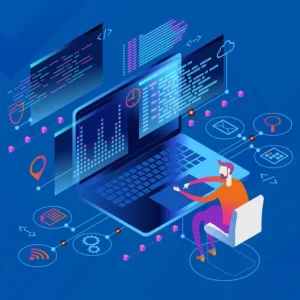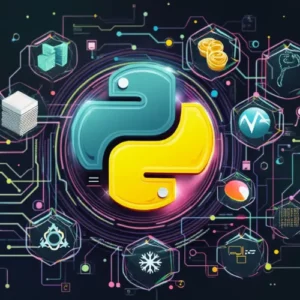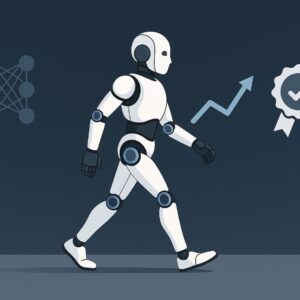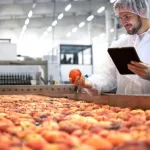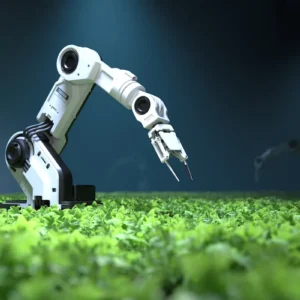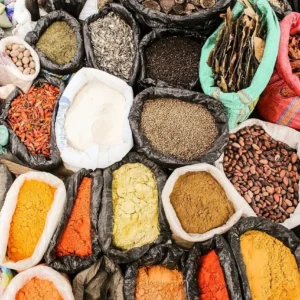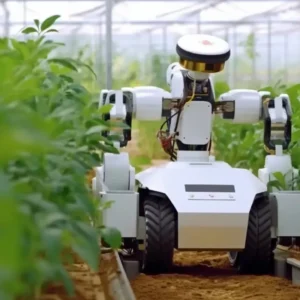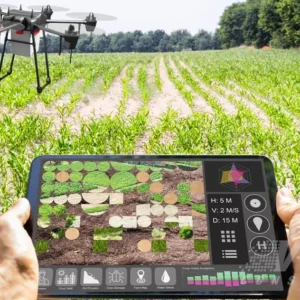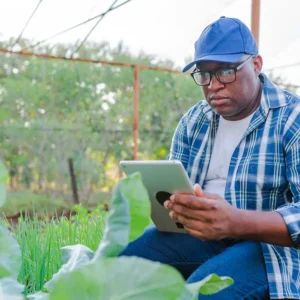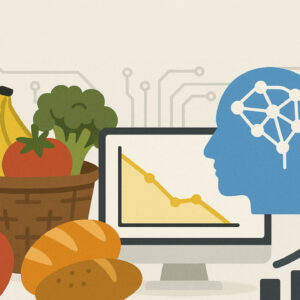In today’s world, the importance of sustainable food production cannot be overstated. As environmental and economic pressures mount, the food industry is turning to innovative solutions, and AI is emerging as a powerful tool to drive sustainability. This technology is revolutionizing agriculture and food systems, offering a new era of efficiency and waste reduction.
AI’s ability to optimize food production is a game-changer. By analyzing vast datasets and predicting outcomes, Artificial Intelligence can make informed decisions to enhance crop yields, minimize resource usage, and reduce the environmental footprint of food production. From precision agriculture techniques to intelligent supply chain management, AI is transforming the way we grow, process, and distribute food.
The benefits of AI in sustainable food systems are vast, offering a brighter future for both the planet and the industry. With its potential to revolutionize food production, AI is a key enabler in creating a more sustainable and resilient food system.
Unlocking the Potential: AI’s Role in Sustainable Food Production
The integration of artificial intelligence in sustainable food systems is a game-changer, offering innovative solutions to enhance crop production. By employing AI-powered analytics, farmers can make informed decisions to optimize yields. These tools analyze critical factors such as soil health, weather patterns, and crop conditions, providing valuable insights to maximize production while minimizing resource waste.
AI-based image recognition and sensor technology play a crucial role in reducing chemical usage. By detecting diseases and pests at an early stage, farmers can implement targeted interventions, thus minimizing the reliance on pesticides. This not only promotes sustainable practices but also ensures the long-term viability of agricultural ecosystems. With AI in sustainable food, we can revolutionize farming practices, ensuring a more efficient and environmentally conscious approach to food production.
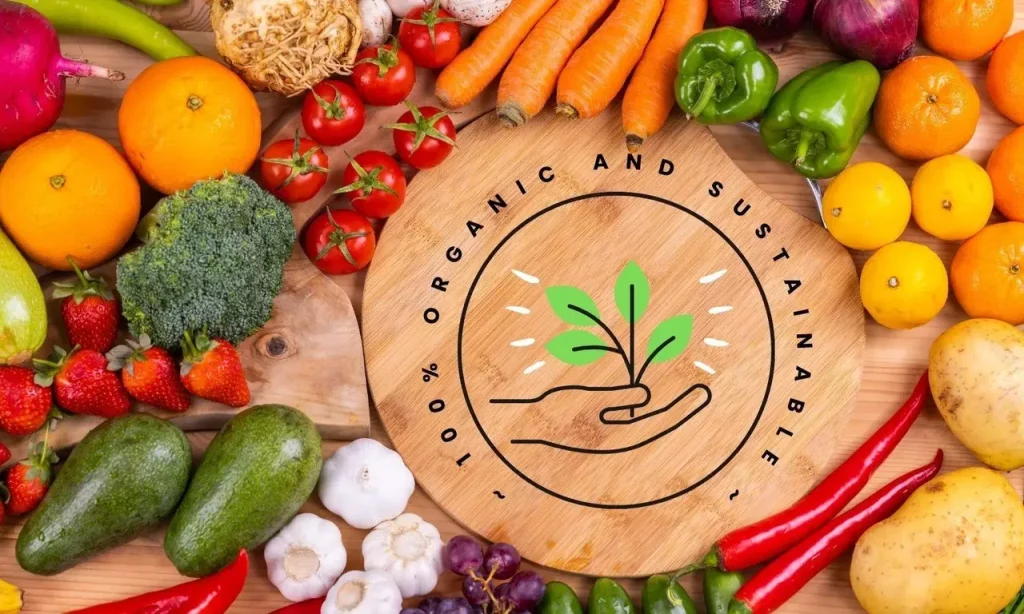
Revolutionizing Agriculture: AI’s Impact on Water Conservation
In the pursuit of sustainable agriculture, artificial intelligence (AI) emerges as a game-changer, revolutionizing water management practices. AI-driven irrigation systems offer a sophisticated approach to water conservation, meticulously monitoring soil moisture levels and weather patterns. By analyzing this data, AI algorithms can optimize water usage, ensuring that crops receive the precise amount of water they need, thus preventing wastage.
The power of AI extends further, acting as a proactive measure against drought. Through advanced predictive analytics, AI can anticipate water shortages, allowing farmers to implement efficient conservation strategies. This ensures that food production remains resilient during challenging drought periods, showcasing AI’s pivotal role in maintaining food security.
With its ability to process vast amounts of data and make informed decisions, AI is not just a tool but a transformative force in agriculture, offering a sustainable future for food production.
Revolutionizing Agriculture: AI’s Role in Sustainable Livestock Farming
Artificial intelligence has the potential to revolutionize the way we approach sustainable livestock farming. By utilizing AI-powered sensors, farmers can monitor the health and welfare of their animals with precision and efficiency. These innovative tools provide real-time data, allowing farmers to detect any signs of illness or discomfort early on, thus reducing the reliance on antibiotics and promoting the overall well-being of the livestock.
Furthermore, AI plays a crucial role in minimizing the carbon footprint associated with dairy and meat production. Through the intelligent optimization of feeding patterns and farm management practices, AI systems can significantly reduce methane emissions from livestock. By analyzing vast amounts of data, AI algorithms can identify the most sustainable and environmentally friendly approaches, ensuring a greener and more sustainable future for the agriculture industry.
The integration of AI in sustainable food systems is an exciting development, offering a range of benefits for both farmers and the environment.
AI’s Role in Sustainable Food Innovation in the Protein Industry
The integration of AI technology is revolutionizing the alternative protein industry, offering innovative solutions for a more sustainable future. With its advanced capabilities, AI is instrumental in creating plant-based proteins that rival traditional meat in terms of texture, flavor, and nutritional value. By meticulously analyzing and understanding the complex molecular structures of meat, AI can guide the formulation process, ensuring an exceptional sensory experience for consumers.
Additionally, AI is at the forefront of the lab-grown meat revolution, significantly accelerating the development of cultured meat. This technology minimizes the environmental footprint associated with conventional livestock farming, offering a greener and more sustainable approach to meat production. AI’s precision and efficiency in this field hold immense promise for reducing the environmental impact of the meat industry and addressing global sustainability challenges.
As we explore the potential of AI in sustainable food, we uncover exciting possibilities for a more sustainable and resilient food system.
Revolutionizing Food’s Supply Chain: AI’s Impact on Waste Reduction
Artificial intelligence is revolutionizing the food industry, particularly in its ability to mitigate food waste across the entire supply chain. By employing AI-powered inventory management systems, businesses can accurately predict demand and optimize food distribution, thereby preventing overproduction and reducing spoilage. This innovative approach ensures that resources are utilized efficiently, minimizing the environmental impact of food waste.
Additionally, AI sensors play a crucial role in tracking food expiration dates, providing real-time data to retailers and consumers. These smart systems send alerts when food is nearing its expiration, allowing for timely consumption or redistribution. This proactive approach not only reduces waste but also enhances food safety, ensuring that consumers have access to fresh and nutritious produce.
AI in sustainable food systems is an exciting development, offering a promising solution to one of the world’s most pressing challenges. By leveraging these innovative technologies, we can work towards a more sustainable and resilient food future.
The Transformative Power of AI in Sustainable Food Practices
The integration of AI technology is revolutionizing the way we approach sustainable food packaging and distribution. By leveraging artificial intelligence, we can develop innovative and eco-friendly solutions to tackle the environmental challenges posed by traditional packaging materials. AI enables the design of biodegradable and recyclable food containers, reducing our reliance on single-use plastics and minimizing the harmful impact on our planet.
Furthermore, AI-powered logistics systems play a crucial role in optimizing food transportation, leading to a significant reduction in carbon emissions. Through intelligent route optimization and efficient fleet management, AI ensures that food products are delivered swiftly and sustainably, minimizing fuel consumption and lowering the carbon footprint of the entire supply chain. With AI’s assistance, we can create a greener and more environmentally conscious food industry, paving the way for a brighter and more sustainable future.
AI’s Role in Personalized Nutrition
The integration of AI technology in the food industry is revolutionizing the way we make dietary choices. AI-powered applications are now able to provide personalized recommendations for sustainable nutrition, taking into account an individual’s unique dietary preferences and the environmental impact of their food choices. By analyzing vast datasets and applying advanced algorithms, these apps offer tailored suggestions to consumers, guiding them towards more environmentally friendly options.
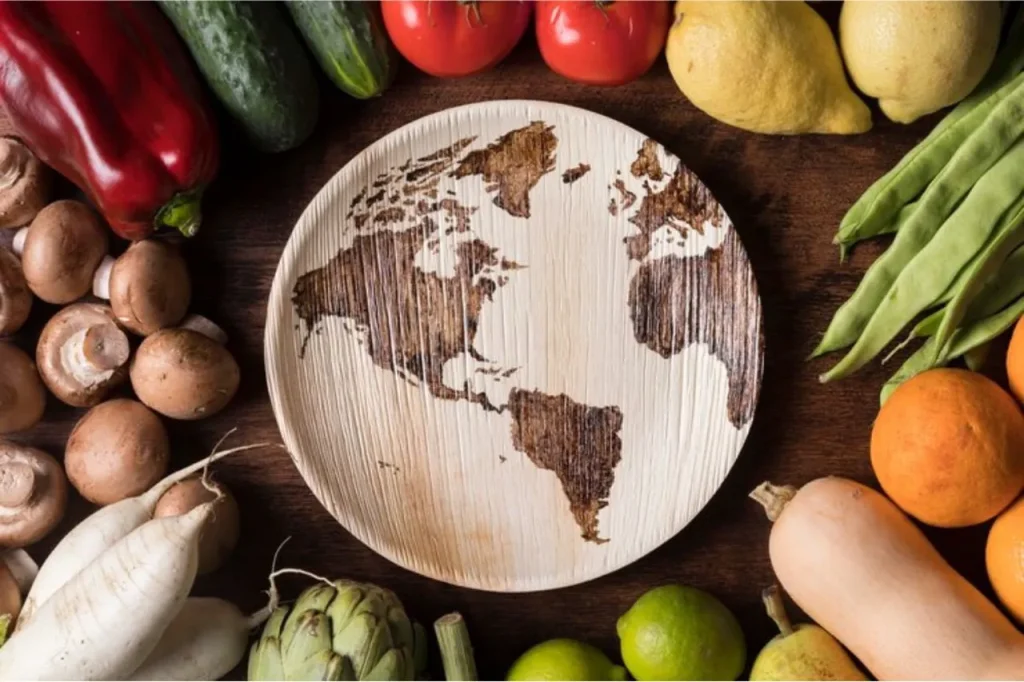
One of the key advantages of AI in sustainable food is its ability to enhance transparency. AI-driven smart labels are being developed to provide consumers with detailed information about the carbon footprint and sustainability of various products. These digital labels offer a comprehensive overview, allowing individuals to make informed decisions and contribute to a more sustainable future. With AI’s assistance, we can empower consumers to take control of their dietary impact and make choices that benefit both their health and the planet.
Sustainable Seafood Practices
Artificial intelligence is a powerful tool that can revolutionize the way we approach ocean and fisheries’ sustainability. With its advanced capabilities, AI can track fish populations and their ecosystems, providing valuable insights to prevent overfishing and ensure the long-term health of our oceans. By analyzing vast amounts of data, AI systems can make informed decisions, helping us preserve marine life and promote sustainable seafood practices.
Furthermore, AI-optimized supply chains are crucial in reducing seafood waste. Through efficient logistics and precise monitoring, AI can minimize spoilage and ensure that seafood reaches consumers in the freshest state possible. This not only benefits the environment but also enhances the overall quality of the seafood industry.
However, as with any technology, there are challenges and ethical considerations to address. It is essential to ensure that AI implementation is fair and accessible to small-scale farmers, who often face difficulties adopting new technologies. Balancing the efficiency of AI with ethical data use is paramount to maintaining consumer trust and privacy. We must carefully navigate these considerations to harness the full potential of AI in sustainable food systems. Collaboration among policymakers, technologists, and agricultural stakeholders is vital for crafting inclusive strategies that maximize AI’s benefits while addressing challenges. This partnership should focus on ensuring equitable access to AI innovations, particularly for small-scale farmers, by providing training programs and resources that bridge the technology gap.

